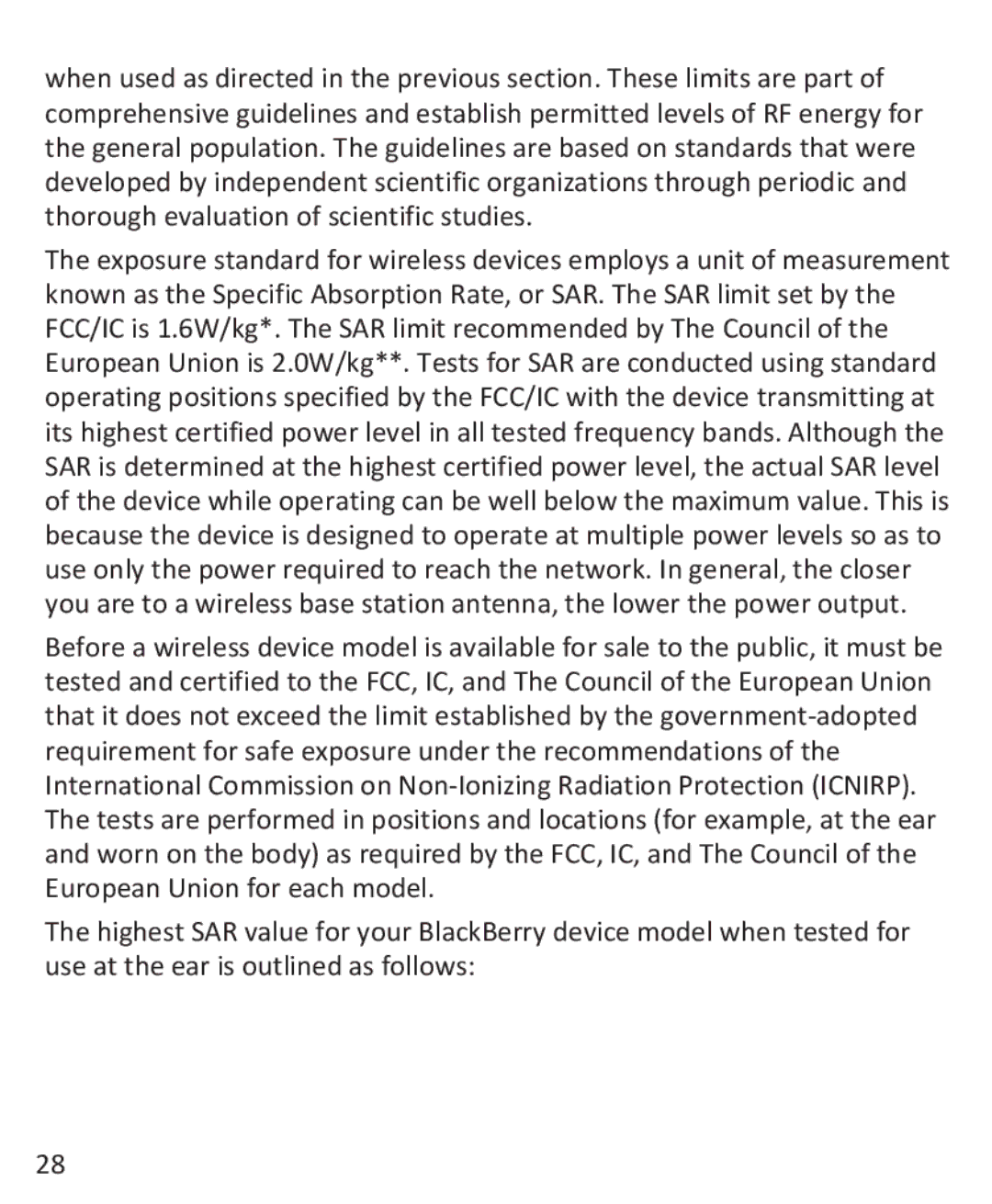when used as directed in the previous section. These limits are part of comprehensive guidelines and establish permitted levels of RF energy for the general population. The guidelines are based on standards that were developed by independent scientific organizations through periodic and thorough evaluation of scientific studies.
The exposure standard for wireless devices employs a unit of measurement known as the Specific Absorption Rate, or SAR. The SAR limit set by the FCC/IC is 1.6W/kg*. The SAR limit recommended by The Council of the European Union is 2.0W/kg**. Tests for SAR are conducted using standard operating positions specified by the FCC/IC with the device transmitting at its highest certified power level in all tested frequency bands. Although the SAR is determined at the highest certified power level, the actual SAR level of the device while operating can be well below the maximum value. This is because the device is designed to operate at multiple power levels so as to use only the power required to reach the network. In general, the closer you are to a wireless base station antenna, the lower the power output.
Before a wireless device model is available for sale to the public, it must be tested and certified to the FCC, IC, and The Council of the European Union that it does not exceed the limit established by the
The highest SAR value for your BlackBerry device model when tested for use at the ear is outlined as follows:
28
